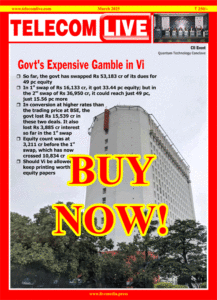NPCI likely to extend UPI market cap deadline for payment platforms
The National Payments Corporation of India (NPCI), tasked with overseeing Unified Payments Interface (UPI), faces a significant challenge in breaking the growing duopoly of Google Pay and PhonePe in the market.
With only eight months remaining before the proposed market cap implementation deadline, MoneyControl reported that NPCI is likely to extend the deadline, acknowledging the complexity of regulating the country’s most popular digital payments platform.
While NPCI, in collaboration with the Reserve Bank of India (RBI), holds authority over UPI regulations, imposing market share caps also comes with legal challenges from entrenched market leaders, MoneyControl said. Regulatory measures could also potentially infringe upon consumer choice.
In November 2020, NPCI proposed that no single third-party app should hold more than 30 per cent market share in the UPI ecosystem by the end of 2022. However, implementing such a cap proved challenging due to the operational complexities of UPI and potential disruptions to the platform. Moreover, with only a handful number of market players at the time, the cap would have disrupted digital payments in the country.
Therefore, the implementation was delayed.
Despite several new market players entering the fray, only two players maintain a double-digit market share in UPI: PhonePe and Google Pay. These two platforms have especially dominated the industry since Paytm Payments Bank came under RBI scrutiny.
PhonePe’s market share has surged from approximately 46 per cent last year to around 48-49 per cent amid the Paytm crisis that emerged in late January this year.
Google Pay has also seen growth, achieving a 38 per cent market share in April.
NPCI convened a virtual meeting earlier this year with smaller UPI players to explore strategies for reclaiming market share from the dominant platforms. Smaller UPI players petitioned NPCI to mandate large merchants to exclusively display UPI as a payment option, to level the playing field.
A proposal for a New Umbrella Entity by RBI has also garnered attention. However, the absence of sustainable solutions to counter the duopoly raises questions about the necessity and efficacy of such interventions.



